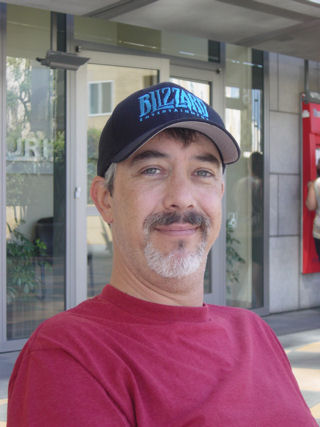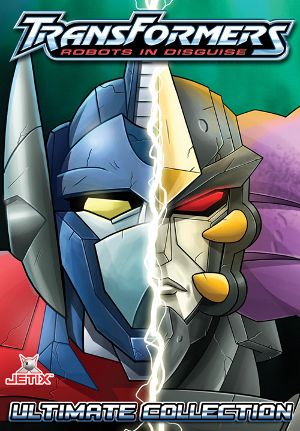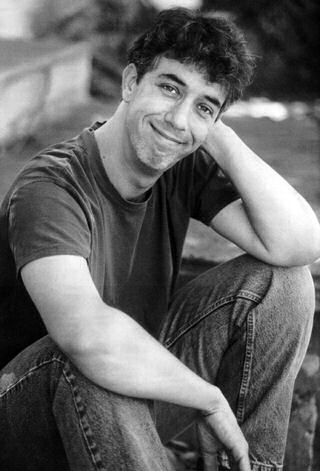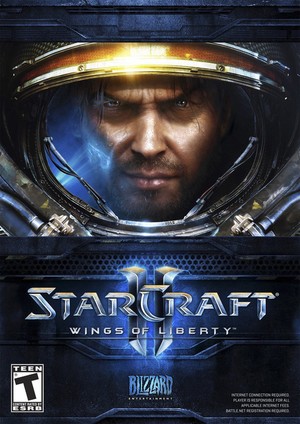
The majority of this interview first appeared on Fanboy Planet in 2010.
Actor Neil Kaplan and I go way back… so far back that neither one of us really remembered it. We both hailed from the Silicon Valley, and in 1989, we both worked for the Sunnyvale Community Players, hung out with many of the same people, and just never quite hung out together. But years later, we were both on a panel at a convention, SiliCon, in San Jose, where I moderated a panel on creating characters.
At the time, Neil was a successful voice in the gaming and anime industries, with the possible best-known credit as what he calls the George Lazenby of the Transformers world — voicing Optimus Prime in the Fox Kids version of Transformers: Robots In Disguise. Since then, though, Neil landed a plum role in the biggest game of 2010: Starcraft II. And in the months after that, his social networking status revealed another very intriguing project: Audio Theater for Our Troops.
In the wake of Comic-Con 2010, I caught up with Neil at the Sherman Oaks Galleria, where we drank Starbucks and talked about his career at the time — which just heated up again in 2016 when he was revealed as the villainous Emperor Zarkon in the hit Netflix series Voltron: Legendary Defender. Please enjoy this blast from the past — and know that yes, Neil will sit down and talk with Fanboy Planet again soon.
Derek McCaw: Here with Neil Kaplan, who plays Tychus Findlay in Starcraft II, and is head of Audio Theater for the Troops.
Neil Kaplan: Actually, we changed the title, from “Audio Theater for the Troops” to “Audio Theater for Our Troops” because eventually we want to reach out to our allies as well, and either be adopted by allied nations or at least have our production design adopted by producers in allied nations.
And of course, that tends to bring people closer when they hear the title and they’re supporting our troops as opposed to the troops.
Derek McCaw: So talk a little bit about that mission, because I don’t think many people are aware of what you’re doing.
Neil Kaplan: I appreciate that. We’re still a fledgling non-profit, even though it is an idea that came to me several years ago through a rather circuitous route. Out of high school I had a friend who graduated with me who served on a nuclear submarine. Two cousins were in the navy, one of which was on an aircraft carrier and involved in media production on the ship. That was the first time I was really made aware of the fact that there was a need for entertainment. Before that, I guess, it was just based on seeing M*A*S*H episodes where they would sit in the mess tent and watch old movies.
In 2001 I was cast as Optimus Prime in a revival ofTransformers. It was called Robots in Disguise, and we debuted on Fox Kids’ television on Saturday morning, September 8, 2001. And of course Tuesday morning, September 11, 2001, being the voice of a fire truck became a whole different experience.

One of the things that happened was a firefighter in Ohio changed his name to Optimus Prime. He stopped fighting fires in Ohio and started fighting fires in Iraq, in support of our men and women fighting and serving.
We would exchange these emails and basically point our fingers at each other and say, “you’re my hero, no, you’remy hero.” It was like, “Dude, I do silly voices for a living, you put your life on the line for strangers, for men and women in the military. It’s amazing. Youare a real hero. What can I do for you?”
And then I thought , oh, I’m a voice-over guy, I should record something for him. That grew to why should it just be for him? Why not for all the men and women that are serving? Because at this point in time, anyone who owns an mp3 player understands how little space audio entertainment takes up in the memory of a computer or an mp3 player or anything of the sort – a smart phone for that matter –versus video.
Besides which, realistically, and I should have started with this because it goes even further back than high school, my mother was a student teacher for a year or two years for a gentleman who played old radio shows. This was back in San Jose. He played old radio shows on Fridays, and I would go and listen to these old radio shows, and eventually he was my sixth grade teacher.
So I had this natural affinity for radio shows, and certainly being the awkward kid who did funny voices at the talent shows and impressions of Jimmy Carter, Jimmy Cagney and Jimmy Stewart – it was the all-Jimmy show, just so you know – doing that as a kid I loved audio entertainment. I loved the old radio shows. So it kind of all wraps back around together.
I realized, or remembered, that when I was in the sixth grade I would put my head down and for those minutes that I’m listening, I wasn’t in the classroom. I was in that field with Orson Welles for War of the Worlds. I was there in New York City with The Shadow.
Again, thinking about those episodes of M*A*S*H, when they’d watch the movie on the walls of the mess tent, and of course, out of their peripheral vision they still knew they were in the mess tent. So it would only take you so far, transport you so much. But if you could lay on your bunk and close your eyes for a minute, you could be in the Batcave. You can be on Mars, you know?
So I started talking to other voice over actors about doing this. Eventually I started talking to on-camera actors. And pretty much to every man and every woman, it was, yes, please, sign me up, what a great idea.
Because let’s face it: If I took a week out of my life and flew over to Iraq and told some jokes and did some voices, maybe that would be appreciated by the people that are there, but what about the people who couldn’t get the time off and come see me? What about the people who are serving in Korea or Germany or under the ocean or here in the States? It doesn’t do any good for them.
But on the other hand, if I can get an Oscar-winner in a booth with me for two hours? It takes up less time out of their schedule, and it’s distributed to more people. It makes a bigger impact. It’s there today and it’s there next week and it’s there in six months, and as long as we need men and women serving us, protecting us, they are going to need to be entertained.

Obviously, Hollywood and Broadway has the talent to perform those stories, and obviously has the talent to write those stories. So we’re just at the beginning. We’re trying to reach strategic alliances with the performing unions, with the writers’ unions, with hopefully the networks one day, so we won’t have that limitation on what we can offer.
My dream, my goal, eventually, is to bring old casts back together. Because we could get a cast from an 80s sitcom and perform one of the many episodes that were written but never videotaped.
Derek McCaw: You could do lost episodes…
Neil Kaplan: And if you saw it, well, people would recognize that these actors are considerably older, and it wouldn’t be the same. On the other hand, most of them sound the same. It’s a way to reunite them, present additional stories.
Look, let’s face it, nobody’s going to sign up for the Marine Corps or the Coast Guard or the Navy or the Army or the Air Force just to hear a radio show put together by Neil Kaplan and his friends. Not gonna happen.
But if just for a moment, they can understand that we’re doing this just for them, it may make a difference. If only for that brief moment, you know? The same sort of thing when other organizations send over care packages, or food from home, or screeners from the Hollywood community. These are all noble efforts, and I commend them. We’re just seeking to do the same, because we really cannot do enough for those that are willing to lay down their lives for us.
Derek McCaw: Can you name some of the other people you have involved so far?
Neil Kaplan: No, I cannot. I can say that my vice-president on the board is a Colonel in the Marine Reserves and is a producer in the Hollywood community. I’m very honored to have a man of his stature and his talent at my side and at my back. There are times when sometimes the charge up the hill seems a little much for a creative person like myself, but when I look and I see a soldier of his quality, I know I’m doing the right thing.
Derek McCaw: On July 27th, your voice hit a lot of people’s consciousness if not your name, because of a little game called Starcraft II. Do you want to talk about being Tychus Findlay?
Neil Kaplan: It’s been a blast. I’ve worked on that for three years, and up until about a year ago I had to sit on the information. Nowadays working on videogames is a wee bit different than it was a few years ago. Producers are addicted to non-disclosure agreements. They don’t want you saying a thing.

I think it was Summer 2008 that Blizzard debuted a trailer in Korea that featured my character being put into his own personal prison of an armored suit. And it was one of the most amazing trailers I’ve ever seen, between the artistry of the cinematic and the sheer talent in the editing, it was just absolutely amazing. It built to this frenzy which ended with my character saying the line, “Hell, it’s about time.”
When you talk about a game that people have ultimately waited twelve years for, that line is very appropriate. Between the amazing trailer they cut together and the stunning appropriateness of the line, that trailer’s been viewed many millions of times around the world. Most people who may be familiar with the game, if they listen to my natural speaking voice, they’re fairly well convinced that I’m not Tychus Findlay.
And that’s a lot of fun. You just go up to somebody’s ear and do the line, and they sort of step back and look and go, “oh no, you are.” (laughs) I spent a couple of years with just “Autobots transform,” and people would go, oh, yeah, that’s cute, that’s nice. But to really have that sort of visceral effect on people now is a whole different thing.
Derek McCaw: Not having seen the trailer or played the game, what is the difference in vocal tone between Tychus and yourself?
Neil Kaplan: He’s an octave or two lower than I am. The character himself is six foot eight, three hundred and eighty pounds. Most people tend to think that the actor would be about the same size. I’m six foot and trying to get back down to two hundred pounds. (laughs)
Derek McCaw: You want to say something in his voice?
Neil Kaplan: I’m actually hoping that you could patch something, maybe one of the videos. To be honest with you, it’s such a deep bassy thing, that I’m afraid that if I held your mic up to my voice just to hear it, it might be blown out and garbled.
There are quite a few out there, and I can guarantee you, folks, that it was not digitally altered. That is me. I do get all the way down there. And of course when you compare that to some of my stage work, which includes playing Mary Sunshine in “Chicago…”
That’s some comparison indeed — check it out below… After I turned off the recorder, Neil walked over and did the line in my ear. Yes, I spilled my iced tea…
http://youtu.be/nFIYZA6vJRk

